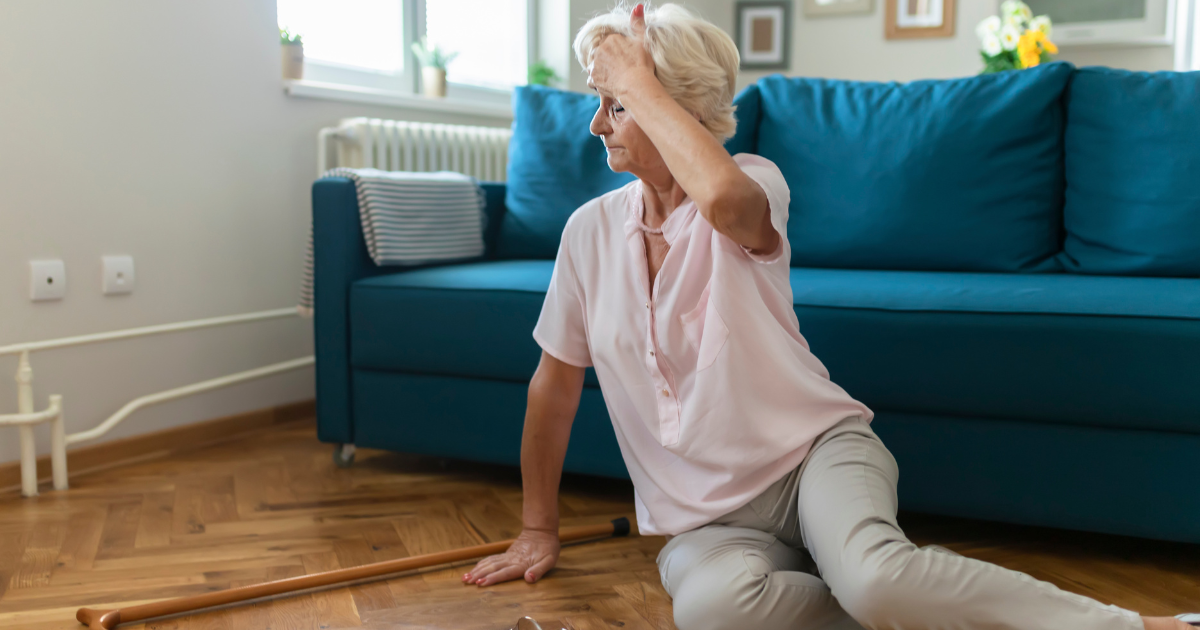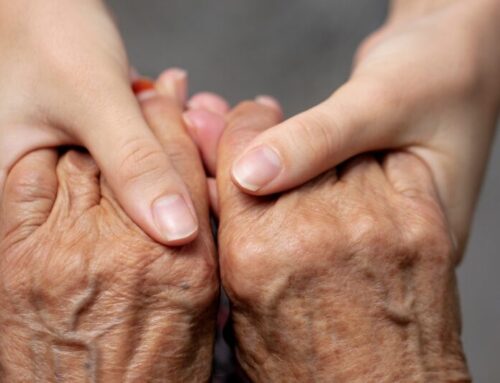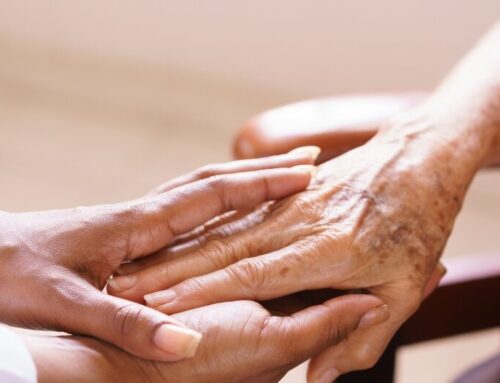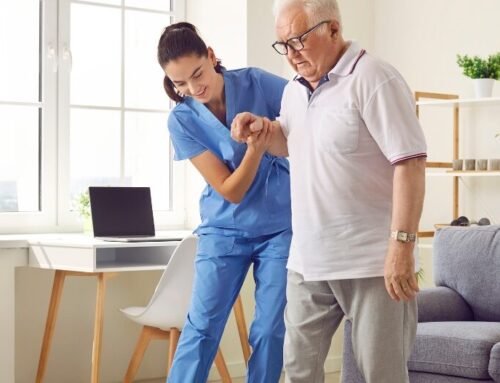Some children believe that the best way to keep Mom or Dad from falling is to keep them indoors at home. They only picture their parents slipping and falling at the store or getting out of the car. While this can happen, many falls occur at home and aren’t the result of clumsiness. While motor skills can deteriorate as adult ages, leading to more falls, other physical and health changes, and sometimes the medication taken to treat these changes, make falls more likely as parent ages. While falling is a major fear for seniors, it doesn’t need to rule their lives. Here are five fall prevention strategies that will help keep your senior loved one safer at home:
Make an appointment with their primary care physician
A visit to your loved one’s doctor is a great place to start if falls have been increasing or are a major concern. Their health care provider can talk with them about:
Medications
They can be reviewed for side effects that may increase the risk of falling or wean them off of drugs that increase fatigue, such as antihistamines, sedatives, and some antidepressants.
Previous falls
Providing their doctor details of previous falls can help identify specific fall prevention strategies that your loved one may be open to following because they come from a trusted source.
Health conditions
Identifying particular eye and ear disorders can help reduce or prevent falls. Dizziness, joint pain, numbness in the feet or legs, and shortness of breath can be addressed and treated. The doctor may also evaluate your parent’s balance and muscle strength.
Keep them moving
Physical activity is a major aid in fall prevention. Walking, tai chi, yoga, and water exercise are low-impact exercises that reduce the risk of falling by improving balance, flexibility, coordination, and strength.
Have them wear sensible shoes
High heels, shoes with slippery soles, and floppy slippers can cause slipping and falling, as can walking in stocking feet. Instead, have your older loved one wear properly fitting, sturdy flat shoes with non-skid soles. This can prevent falls and also reduce joint pain.
Remove home hazards
Evaluate their home and look for potential trip and fall hazards. Take these steps:
- Remove boxes, newspapers, electrical cords, and phone cords from walkways.
- Move coffee tables, magazine racks, and plant stands from high-traffic areas.
- Secure loose rugs with double-faced tape, tacks, or slip-resistant backing — or remove loose rugs from their home.
- Repair loose wooden floorboards and carpeting right away.
- Store clothing, dishes, food, and other necessities within easy reach.
- Immediately clean spilled liquids, grease, or food.
- Use nonslip mats in the bathtub or shower. Use a bath seat, which allows them to sit while showering.
Light up their living space
Poor lighting causes many unnecessary falls. Keep their home brightly lit and:
- Place night lights in their bedroom, bathroom, and hallways.
- Place a lamp within reach of their bed in case they need to get up in the middle of the night.
- Make clear paths to light switches that aren’t near room entrances. Consider trading traditional switches for glow-in-the-dark or illuminated switches.
- Have them turn on the lights before going up or down the stairs.
- Store flashlights in easy-to-find places in case of power outages.
Our professional caregivers are trained to keep seniors safe at home. We provide a guiding hand for aging adults in Cape Coral facing mobility challenges and need their homes kept free from falling hazards. Contact Seaside Home Health Care today for a free in-home care assessment. We’ll develop a customized care plan to keep your senior loved one safe and comfortable where they most prefer to be – at home.





